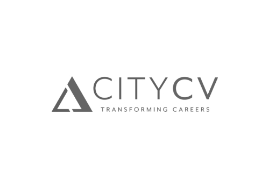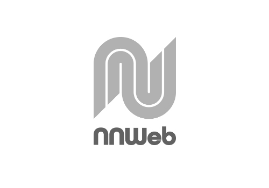Search Engine Optimisation (SEO) is a constantly evolving field, yet myths and misconceptions about it persist. Many businesses fall into the trap of outdated or incorrect SEO strategies, leading to wasted time, effort, and resources. In this article, we’ll debunk some of the most common SEO myths and highlight what truly works to improve your website’s search rankings.
7 SEO Myths Debunked
Myth #1: Keywords Are the Only Thing That Matters
The Truth:
While keywords are important, they are just one piece of the SEO puzzle. Google’s algorithms now prioritise search intent and content quality over keyword stuffing. Simply inserting keywords without context or relevance can actually harm your rankings and make your content appear unnatural or spammy.
What Works:
- Focus on natural keyword integration and relevant content that flows seamlessly.
- Use long-tail keywords that align with user intent, as they often have less competition and lead to higher conversion rates.
- Ensure your content answers real questions your audience is searching for, addressing their pain points and providing valuable insights.
- Optimise for semantic search, where search engines consider related terms and contextual meaning rather than exact keyword matches.
Myth #2: More Backlinks Automatically Mean Higher Rankings
The Truth:
Not all backlinks are created equal. A high volume of low-quality or spammy backlinks can negatively impact your website’s credibility and even result in penalties from Google. Google values quality over quantity, rewarding sites with backlinks from reputable and relevant sources that provide value to users.
What Works:
- Earn backlinks from trusted industry websites and authoritative sources such as news publications, educational institutions, and government sites.
- Use guest blogging, PR outreach, and influencer collaborations to build a strong and diverse link profile.
- Regularly audit your backlink profile and disavow harmful or toxic links that may affect your rankings.
- Create high-quality, shareable content such as in-depth guides, case studies, and original research that naturally attract backlinks.
Myth #3: SEO is a One-Time Effort
The Truth:
SEO is not a set-and-forget strategy. Google frequently updates its algorithms, meaning what works today may not be effective in six months. A successful SEO strategy requires ongoing monitoring, updates, and optimisations to maintain and improve rankings.
What Works:
- Keep up with Google algorithm updates and adjust your strategy accordingly to avoid ranking drops.
- Regularly update old content to maintain relevance and freshness, improving your chances of ranking higher.
- Continuously improve site speed, structure, and user experience, as slow-loading websites and poor navigation can negatively impact rankings.
- Implement a content refresh strategy, where you update and expand existing blog posts with new information, statistics, and insights.
Interested to learn more?
Myth #4: More Pages Mean Better Rankings
The Truth:
Creating lots of pages with thin or duplicate content will not boost your rankings. Google prioritises quality over quantity, so flooding your site with low-value pages can actually dilute your SEO efforts and lead to lower rankings.
What Works:
- Focus on high-quality, in-depth content that provides value to users rather than creating unnecessary pages.
- Avoid duplicate pages and consolidate similar content to reduce redundancy and improve clarity.
- Improve internal linking to enhance navigation, distribute link equity, and keep users engaged longer on your site.
- Use content silos and topic clusters, where related content is grouped together logically to strengthen SEO signals.
Myth #5: Social Media Directly Impacts SEO Rankings
The Truth:
Social media does not directly influence search rankings, but it does play a supporting role in SEO success. Strong social signals can drive traffic, increase brand awareness, and encourage content sharing, which can lead to valuable backlinks and increased visibility.
What Works:
- Use social media to promote and distribute content effectively, increasing its reach and engagement.
- Encourage sharing to increase content visibility and potential backlinks from authoritative sites.
- Build brand authority and trust, which can indirectly impact rankings by improving click-through rates and branded search queries.
- Optimise your social media profiles with consistent branding, relevant keywords, and links to your website to enhance credibility.
Myth #6: SEO is All About Google
The Truth:
While Google dominates search, other search engines like Bing, Yahoo, and DuckDuckGo also contribute to online visibility. Additionally, platforms like YouTube and Amazon have their own SEO principles that businesses should consider when optimising content.
What Works:
- Optimise for multiple search engines where your audience is active.
- Apply SEO best practices to video content (YouTube) by using keyword-rich titles, descriptions, and engaging thumbnails.
- Monitor search trends across different platforms and adapt your strategy accordingly to capture a wider audience.
- Implement local SEO tactics on Google My Business and Bing Places to improve visibility for local searches.
Myth #7: You Must Rank #1 to Succeed
The Truth:
While a top-ranking position is beneficial, it’s not the only way to drive traffic and conversions. Studies show that featured snippets, local search results, and well-structured meta descriptions can also generate significant clicks, even if they don’t rank first in traditional organic results.
What Works:
- Optimise for featured snippets and rich results by structuring content clearly, using lists, tables, and concise answers to common queries.
- Focus on local SEO if your business serves a specific region, optimising Google My Business profiles, NAP consistency, and local keyword targeting.
- Create compelling meta titles and descriptions that are persuasive, informative, and encourage higher click-through rates.
- Leverage voice search optimisation by using conversational keywords and answering direct questions in content.
Understanding the real SEO strategies that work is crucial for long-term success. Avoid falling for outdated myths and focus on proven techniques like high-quality content, ethical link-building, and user-centric optimisation. SEO is an ongoing process that requires adaptation, testing, and refinement to stay ahead of competitors and meet evolving search engine requirements.
Need help optimising your website for search success? At CreativeFolks, we offer expert SEO services to help businesses grow online. From keyword strategy and content creation to technical SEO audits and link-building, we provide customised solutions that drive real results.
To get in touch with our SEO team, call on 01604 420 430, or send us a message via our contact page.













